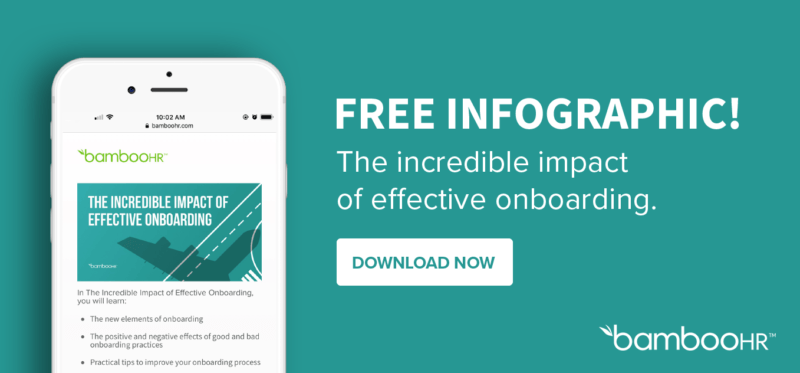Internal Hires Need Onboarding Too
“Hire and promote internally!” You hear it all the time because it’s a really, really great idea to use the talent you’ve been fostering within your company. Plus, you don’t have to onboard them again, right? WRONG!
Okay, well sort of. It’s true: You can get away with not teaching your employee about the company all over again when you hire from within. It would be a monumental waste of everyone’s time to make a company veteran take a tour of the office that he or she has been working at for three years.
But internal onboarding is still really important. A lot of companies forget that just because someone has been on your payroll for a while doesn’t mean he or she is ready to jump right into a new roll. I should know! I actually started with BambooHR in their (amazing) implementation department before becoming a brand journalist. Honestly, it felt like starting a completely new job. Which makes sense, considering it is an entirely new job.
There are some things internal hires still need in onboarding, even though they’re been with the company for a while.
1. Socialization
In HR, we typically get to know everyone pretty well. Recruiters are the first people candidates connect with. And throughout the year we are busy managing every employees’ stuff. It can be easy to forget that all of your employees don’t know each other as well as you know each of them.
Even in small companies, employees are going to know people in their department better than they know everyone else. A departmental move can mean working with a complete new set of people.. Do you want your employee to feel all alone in his or her new role?
Even switching roles within a department can mean very different interactions. The two people your employee collaborated with on a daily business may have nothing to do with the area he or she is now a part of.
Be sure to encourage socialization with an new internal hire (almost) as much as you would with an external hire. If you typically have the department take new hires out to lunch, do this with your internal hires as well. They’ll feel welcomed into their new role and will love the opportunity to connect with their coworkers.
Perhaps you won’t need to introduce the employee to the whole company, but sending a “Welcome” email to his or her new department with a few interesting facts about their new coworker will help break the ice.
2. Training
Your rock-star marketer isn’t going to automatically know how to be a rock-star product manager. He obviously has some skills (or you wouldn’t have hired him), but he will definitely need guidance because he will be doing something completely new. Remember this with promotions too: Just because your new manager was the top sales executive doesn’t mean she’s going to know how to best manage other sales executives. Being a manager is hard and requires a new set or skills. Make sure a new manager is getting the help she needs.
Also, remember that your internal hires are likely doing their new position for the very first time! When you bring in external candidates, they may have some experience. But often times internal candidates are making a career change or advancement, and this is when employees need training most—when they are brand new at something!
3. Feedback
Internal hires need feedback on the early work they do. Just like any new job, the first few months are scary. But internal hires have added pressure because they want to prove that the right choice was made in promoting them vertically or horizontally. It’s always worse to let down people you know. All new employees need to know if they’re meeting expectations—whether they’re internal or external hires. It’s vital to do check-ins with your internal hire periodically throughout the first year of his or her new position. Is he or she happy in the new position? What development is needed?
Don’t get lured into thinking you don’t need to worry about onboarding employees just because you hired them internally! You still need to be paying attention to their workplace happiness and onboarding them for success. Yes, you may be able to skip a few steps early on, but a new position requires a lot of new knowledge. Internal hires need your onboarding guidance just as much as external hires.
Get caught up every month on all things HR. Don't worry, we promise we won't spam you.










